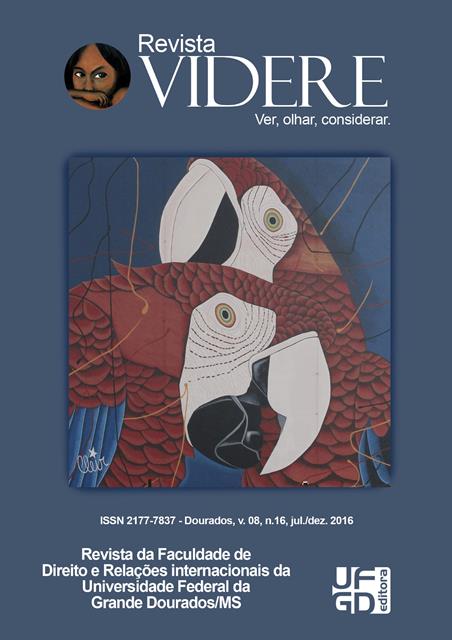The constitutional limits of informaton that violates the personality's right, and the internet issue
Keywords:
Information’s right. The Right of image and privacy. Constitutional limits.Abstract
This Article makes a brief study the limits of the fundamental right to inform and be informed, by means of analysis of doctrinal and jurisprudential material in order to form on the reader a critical sense about the matt er, in order to understand it under the bias of the values that underpin the entire right. For the development of the subject, the work is divided into seven parts; the fi rst deals with the fundamental rights as an initial parameter to set the limits. The second part deals with the rights of personality, in search of the strengthening of the limits. Then it approaches on the principle of freedom, for, in a fourth time, working with the dignity of the human person as a value to be observed. Aft er these moments, the introductory Article joins specifi cally on this, using the components before brought to study the rights to information, image and privacy, as well as the legal consequences for violation of the last two. Bearing in mind that if you want to work with the exercise of rights on the internet, be pertinent to the subject matt er covered, devotes himself to the sixth topic to examine the responsibility of sites hosts by displaying information off ensive, commenting also on the Law 12,737 /2012. Finally, the seventh topic appends the vision practice brought in previous topics and theory originated from the beginning, the vision of doctrinaire solution of confl icts by means of the criteria of reasonableness and proportionality.Downloads
Downloads
Published
How to Cite
Issue
Section
License
Authors must accept the publication rules when submitting the journal, as well as agree to the following terms:
(a) The Editorial Board reserves the right to make changes to the Portuguese language in the originals to maintain the cultured standard of the language, while respecting the style of the authors.
(b) Authors retain the copyright and grant the journal the right to first publication, with the work simultaneously licensed under the Attribution-NonCommercial-ShareAlike 3.0 Brazil (CC BY-NC-SA 3.0 BR) that allows: Share - copy and redistribute the material in any medium or format and Adapt - remix, transform, and create from the material. CC BY-NC-SA 3.0 BR considers the following terms:
- Attribution - You must give the appropriate credit, provide a link to the license and indicate whether changes have been made. You must do so under any reasonable circumstances, but in no way that would suggest that the licensor supports you or your use.
- NonCommercial - You may not use the material for commercial purposes.
- Sharing - If you remix, transform, or create from material, you must distribute your contributions under the same license as the original.
- No additional restrictions - You may not apply legal terms or technological measures that legally restrict others from doing anything that the license permits.
(c) After publication, authors are allowed and encouraged to publish and distribute their work online - in institutional repositories, personal page, social network or other scientific dissemination sites, as long as the publication is not for commercial purposes.



















